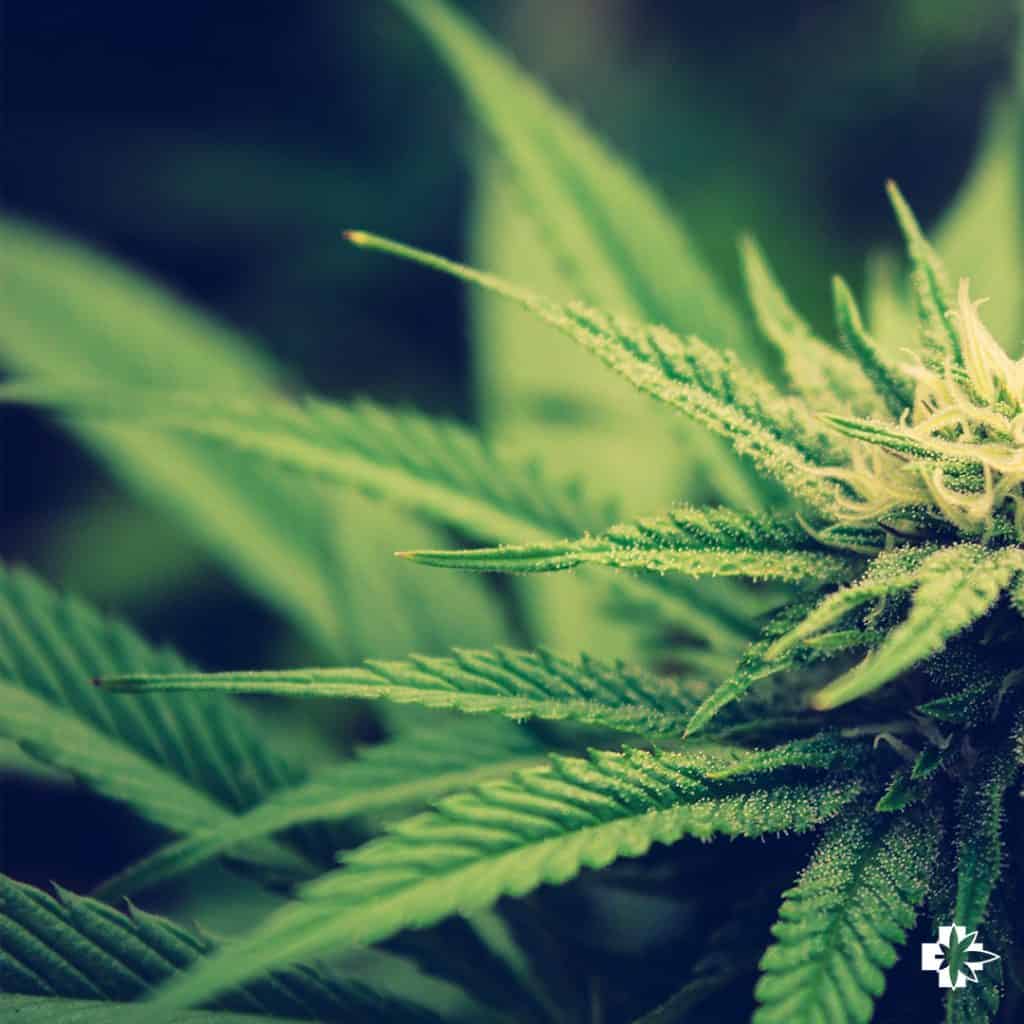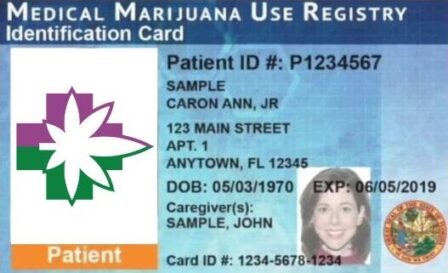How to Get a Florida Marijuana Card & Florida MMJ Card
Here’s a 411 on how to get a Florida marijuana card. If you're a Florida resident seeking medical marijuana or low-THC cannabis, here’s what you need to know.
First, you’ll need to see a qualified physician registered with Florida’s Medical Marijuana Use Registry. This doctor must diagnose you with a qualifying condition and sign a statement confirming it. So bring your medical history or records to your appointment—your physician will need them.
Here’s what else is required:
The doctor must be a licensed MD or DO (Doctor of Osteopathy) and approved to recommend medical marijuana.
They also need to complete a Continuing Medical Education (CME) course specific to medical cannabis in Florida.
Your physician must determine that the potential benefits outweigh the risks of cannabis treatment.
You must have tried other treatments first, without success.
You must also meet the doctor to establish a real physician-patient relationship.
If approved, the physician will submit cannabis orders every 45 days through the Medical Marijuana Use Registry and prescribe no more than a 45-day supply.
Your doctor must submit a quarterly treatment plan to the Florida College of Pharmacy. This includes your dosage, method of use, treatment duration, and how they’ll monitor your progress.
Before anything is submitted, your physician (or legal guardian, if needed) must get your written, informed consent to enroll you in the Compassionate Care Registry. The Florida Department of Health manages this.
Once registered, you can apply for a Medical Marijuana Use Registry Identification Card. This ID is required to buy any cannabis, low-THC product, or cannabis delivery device in the state.
A few things to keep in mind:
The application process takes time—sometimes more than two months—even with all the right paperwork.
Your application must be updated in the Registry within seven days if anything changes.
Your doctor or legal representative can submit the application for you, but that may come with extra fees.
After you receive your Registry Card, you (or a legal representative) can buy cannabis from any licensed Medical Marijuana Treatment Center (MMTC) in Florida.
Important:
Your physician certification expires every 210 days, so you’ll need to renew it roughly every 7 months.
Your MMJ card expires after one year and must be renewed annually.
Who Qualifies for a Florida Medical Marijuana Card?
If you’re a Florida resident and dealing with certain health conditions, you may be eligible for medical marijuana. According to the Florida Department of Health’s Office of Compassionate Use, you can apply for a medical marijuana card if you’ve been diagnosed with any of the following qualifying conditions.
- Cancer
- Epilepsy
- Glaucoma
- HIV/AIDS
- Post-traumatic stress disorder (PTSD)
- Amyotrophic lateral sclerosis (ALS)
- Crohn’s disease
- Parkinson’s disease
- Multiple sclerosis (MS)
- Comparable medical conditions to those listed above
- A terminal condition diagnosed by a physician other than the medical marijuana doctor
- Chronic non-malignant pain caused by (or originating from) any of the above medical conditions and that continues beyond the typical trajectory of the condition

Why Get a Medical Marijuana Card in Florida?
Let’s be real—Florida doesn’t allow recreational cannabis. So if you want to stay legal and still enjoy the benefits of cannabis, getting a medical marijuana card is the way to go.
Here’s how it helps:
You get easier, more reliable access to licensed dispensaries.
You’ll be using products that are clinically tested and certified.
The quality and strength of your cannabis is consistent, so you know what to expect.
You avoid legal trouble—no worries about getting caught with cannabis.
It cuts down on stress related to unauthorized use.
And you won’t have to worry about law enforcement misunderstandings.
Plus, with a Florida MMJ card, you can legally use vape pens, oils, edibles, sprays, and capsules—even though smoking the actual plant is still off-limits under state law. Many patients find that edibles are a reliable way to dose, and vaping offers a cleaner, smoother experience compared to smoking, without the tar or toxins.
Low-THC Cannabis vs. Medical Marijuana: What’s the Difference?
Florida allows both low-THC cannabis and medical marijuana, but they’re not the same.
Low-THC cannabis contains very little of the psychoactive compound THC, less than 0.8%. But it’s high in CBD (over 10%), which provides relief without the “high.” It’s ideal for people looking for symptom relief without the mind-altering effects of traditional marijuana.
On the other hand, medical cannabis has higher THC content and is more potent. It’s better suited for patients dealing with chronic pain, PTSD, cancer treatments, and other severe conditions.
Both are legal for qualified patients, but your doctor will help decide what’s right for you.
What Does a Florida Medical Marijuana Card Cost?
There are a few costs to keep in mind when trying to figure out how to get a Florida marijuana card:
First, you’ll need to see a qualified cannabis doctor. That visit typically runs $185 or less, depending on the provider.
You’ll need passport-style photos for your ID card—another small cost.
Once approved, you pay a $75 annual fee to keep your registration active.
Renewing your card is a yearly thing. Keep that on your radar!

Choosing the Right Cannabis Doctor in Florida
Picking the right cannabis doctor matters. You want someone who knows their stuff and genuinely cares about your health, not just handing out cards.
Here’s what to look for:
Doctors who explain your options clearly.
Clinics that provide upfront pricing and honest answers.
Physicians who listen and tailor their recommendations to your needs.
Also, remember that you no longer need to wait 90 days or visit monthly before applying. However, you still need a face-to-face recertification every 210 days (about 7 months). We recommend booking your appointment around 45 days before your current card expires, just to be safe.
Need a trusted doctor? Check out our page: Medical Marijuana Doctor. The team at KindHealth will evaluate your condition, guide you through every step, and get you the cheapest med card in Miami.
Florida Medical Marijuana Compassionate Use Registry
Back in 2016, Florida voters passed Amendment 2 of the 2014 "Charlotte's Web" bill to extend legal access to medical marijuana cards for residents with a wide range of qualifying conditions. The legislation, which came into effect in January of 2017, expands the state’s original definition of "debilitating medical condition" and allows certified physicians to prescribe medical cannabis and Cannabidiol (CBD) oil containing full-strength medicinal benefits to covered individuals.

Previous Law
Previously, according to 2014 state medical marijuana laws, only cannabis low in tetrahydrocannabinol (THC) but rich in cannabidiol was legal in Florida. The primary objective of the 2014 measure was to permit a request for access to low-THC (but high cannabidiol) marijuana for people with epilepsy to mitigate the occurrence and effect of unexpected (and crippling) seizures. Florida’s 2014 Charlotte's Web bill, which amended the federal Controlled Substances Act (CSA), also allowed the use of CBD oil for people with cancer, terminal illness, muscle spasms, and epilepsy.
But in 2016, after years of legal wrangling, research, and refinement of legislation, the state of Florida voted in favor of Amendment 2, establishing what is now known as the Office of Medical Marijuana. The legalization of the measure opened the door to medical marijuana, regardless of THC level, for residents with a broader spectrum of debilitating conditions.
The 2016 Amendment 2 to Florida’s Compassionate Care Act legalized medical marijuana in Florida's Office of Medical Marijuana Use. Specialized CBD doctors can now certify qualifying patients for the Medical Marijuana Use registry. This allows patients to purchase medical marijuana. Patients can reach the Registry as follows:
Email: Medicalmarijuanause@flhealth.gov
Mailing Address Patient and Caregiver ID Card Applications & Accompanying Documents:
Office of Medical Marijuana Use
PO Box 31313
Tampa, FL 33631-3313
All Other Mail:
Department of Health
Office of Medical Marijuana Use
4052 Bald Cypress Way, Bin M-01
Tallahassee, FL 32399
Portions of this blog were revised using advanced artificial intelligence tools to rapidly generate diverse ideas and perspectives. Our team of expert physicians at KindHealth has thoroughly reviewed, verified, and refined each section to ensure accuracy, consistency, and alignment with our brand’s voice. We believe in combining innovative technology with human insight to deliver high-quality, reliable content.
Meet Tom. He got his card from KindHealth.
![]()
For more information, see our related pages “Cannabis Card Benefits“ and “How to Get a Cheap Florida Marijuana Card”. To learn more marijuana facts, visit our medical marijuana FAQ page. If you are a medical marijuana user with a qualifying medical condition, call us at (786) 953-6838 to schedule an appointment and get your marijuana card today! Whether you’re just doing some research or you’re ready to get your MMJ card, we’re here to help.
For even more info:
Is There an Age Requirement for an Evaluation?
How Do I Apply for a Cannabis Card in Miami?
I Have my Cannabis Card Now What Do I Do?
How Do I Renew my Card?
Can I Serve as a Legal Representative if Im a Patient?
Can I Use Medical Marijuana if I am a Caregiver?



Comments are closed.